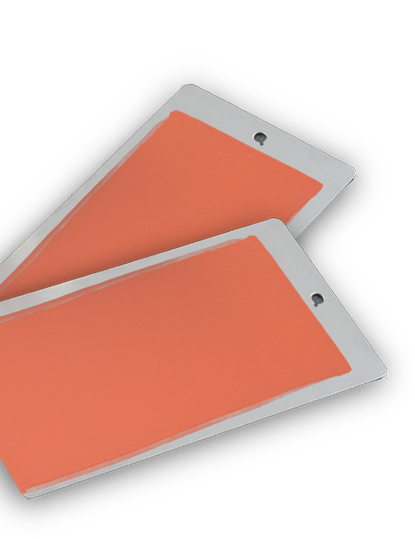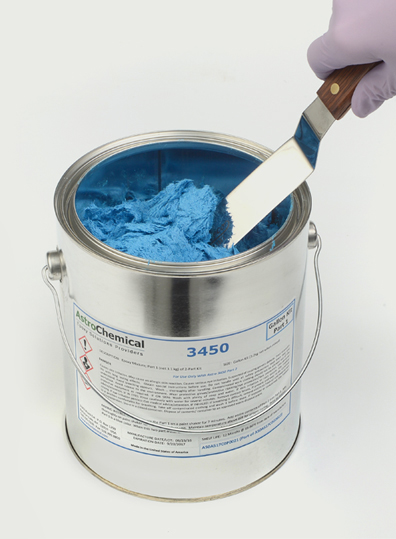Saturants
Saturants are integral to strengthening and consolidating porous structures
Saturating or “weeping” resins are used to wick into small voids and porous structures to consolidate and strengthen when cured. We approach saturant applications much like our other product categories, seeking to understand the forces involved, the desired cured characteristics, and the desired ‘working conditions’ when they are applied.
Because saturants become an integrated part of the substrate to which they are applied, we assess material compatibility to ensure optimal bonding once cured. From high-temperature VPI insulating resins to less-caustic, occupationally-friendly structural resins used in repair operations, it is critical for saturants to be well-matched with their substrates and the operating conditions they will experience in service.
- Thermal Class (expected service temp)
- Thermal Measurement (HDT / Tg)
- Coefficient of Thermal Expansion
- Tensile Strength
- Flexural Strength
- Electrical Properties (Insulating / Conductive)
- Water Absorption
- Application Process / Delivery Method
- Pot Life / Working Life / Set Time
- Cure Requirements
- Shelf Life
- What is your application?
- What material/product are you using now, and what properties/conditions/processes are you looking to improve?
- Are there any applicable specification requirements? If so, please describe?
- Are there EHS restrictions or concerns? If so, please describe?
- Do you have a specific type of packaging or material application process in mind?
- How do you need to apply the material (i.e. dip, brush, pour, etc)?
- What is the material to be saturated?
- What are your adhesion requirements? How is adhesion defined (i.e. test method)?
- What are your bonding surfaces?
- Would you prefer a single-component (elevated temp cure) or two-component (room temp cure) system?
- What are your physical property requirements?
- Viscosity / rheology (typically, a low viscosity liquid)
- Hardness
- Flexibility
- Mechanical strength requirements (i.e. flexural, compressive, tensile, or a combination)
- Chemical / environmental resistance
- Thermal aging / thermal class
- Electrical properties, such as dielectric, semi-conductive or conductive
- Color
- What are your application and curing conditions?
- What are you pot life / working time requirements?
- Are there mass or exotherm temperature considerations?
Can the product contain solvents, or must it be 100% solids?
Proper storage is critical to maintaining the quality of an engineered coating, adhesive, saturant or encapsulant. Failure to follow recommended storage instructions can result in compromised material properties during application and in the final cured product.
All Astro products should be stored in their original, sealed containers at room temperature out of direct sunlight. Excessive heat can cause accelerated aging, premature cure/solidification, and may even pose a safety risk for products designated as flammable. Excessively low, and below-freezing storage temperatures can lead to crystallization.
Always refer to the Astro product label for the most up-to-date product-specific storage guidelines.


